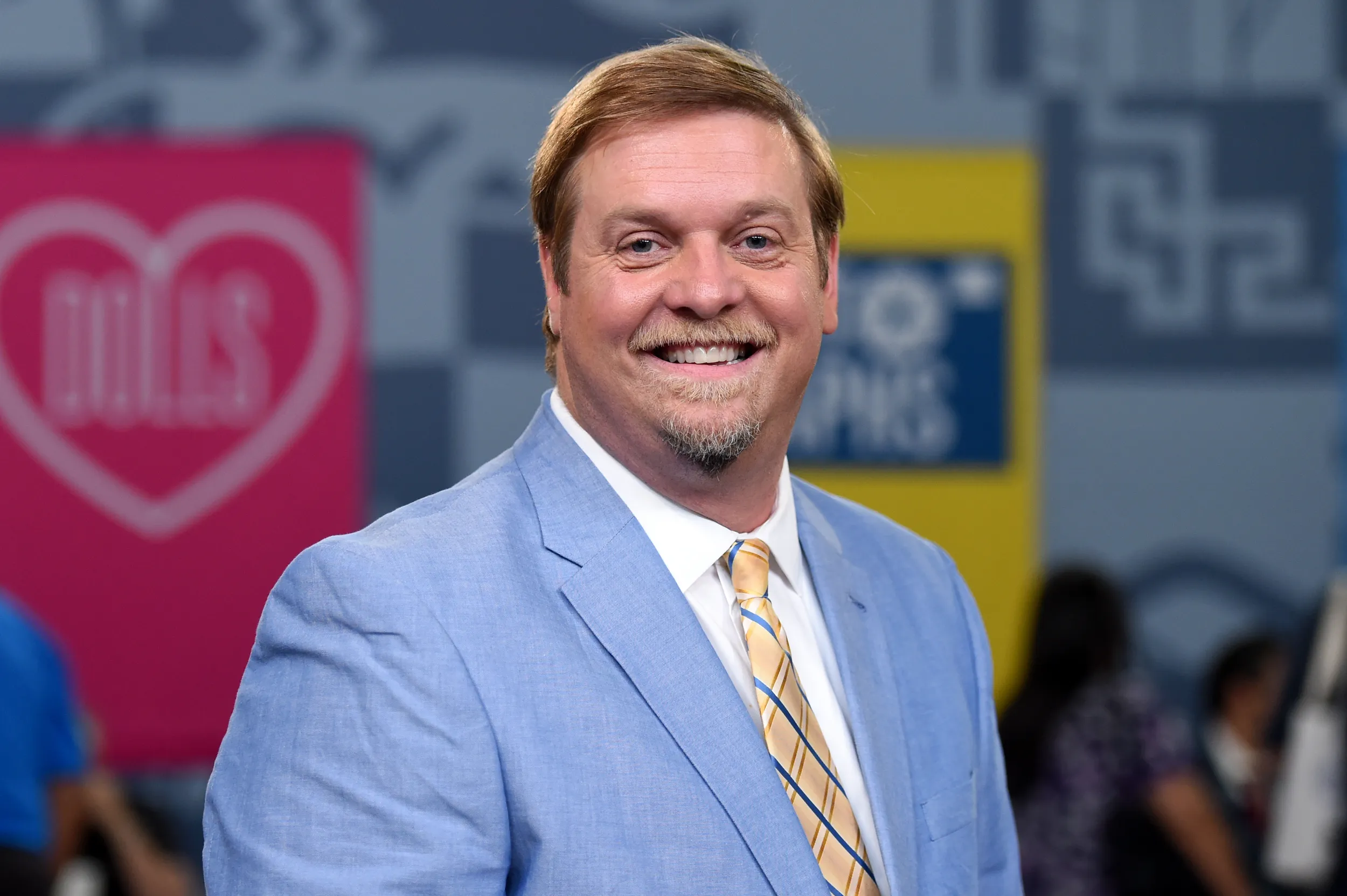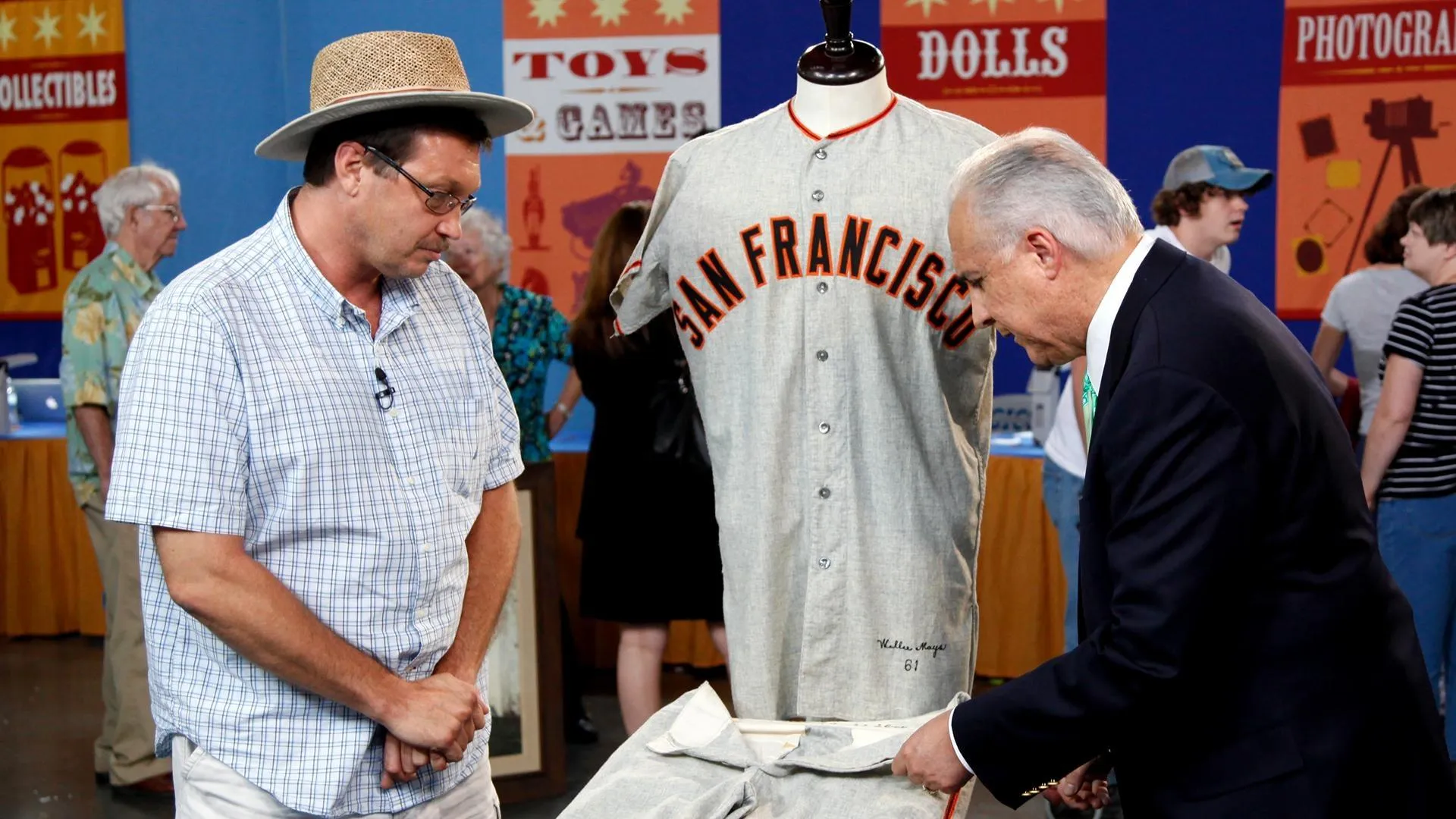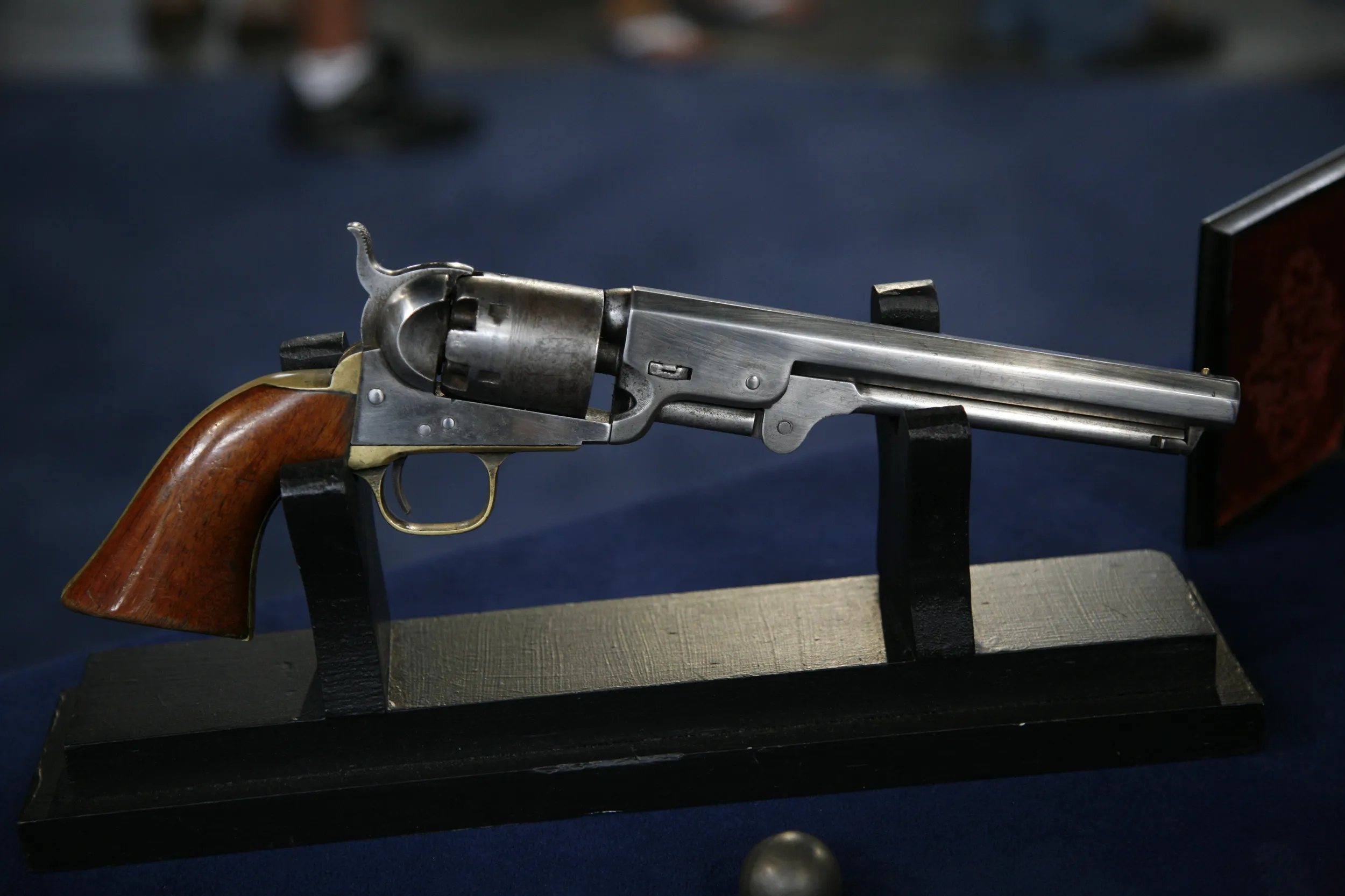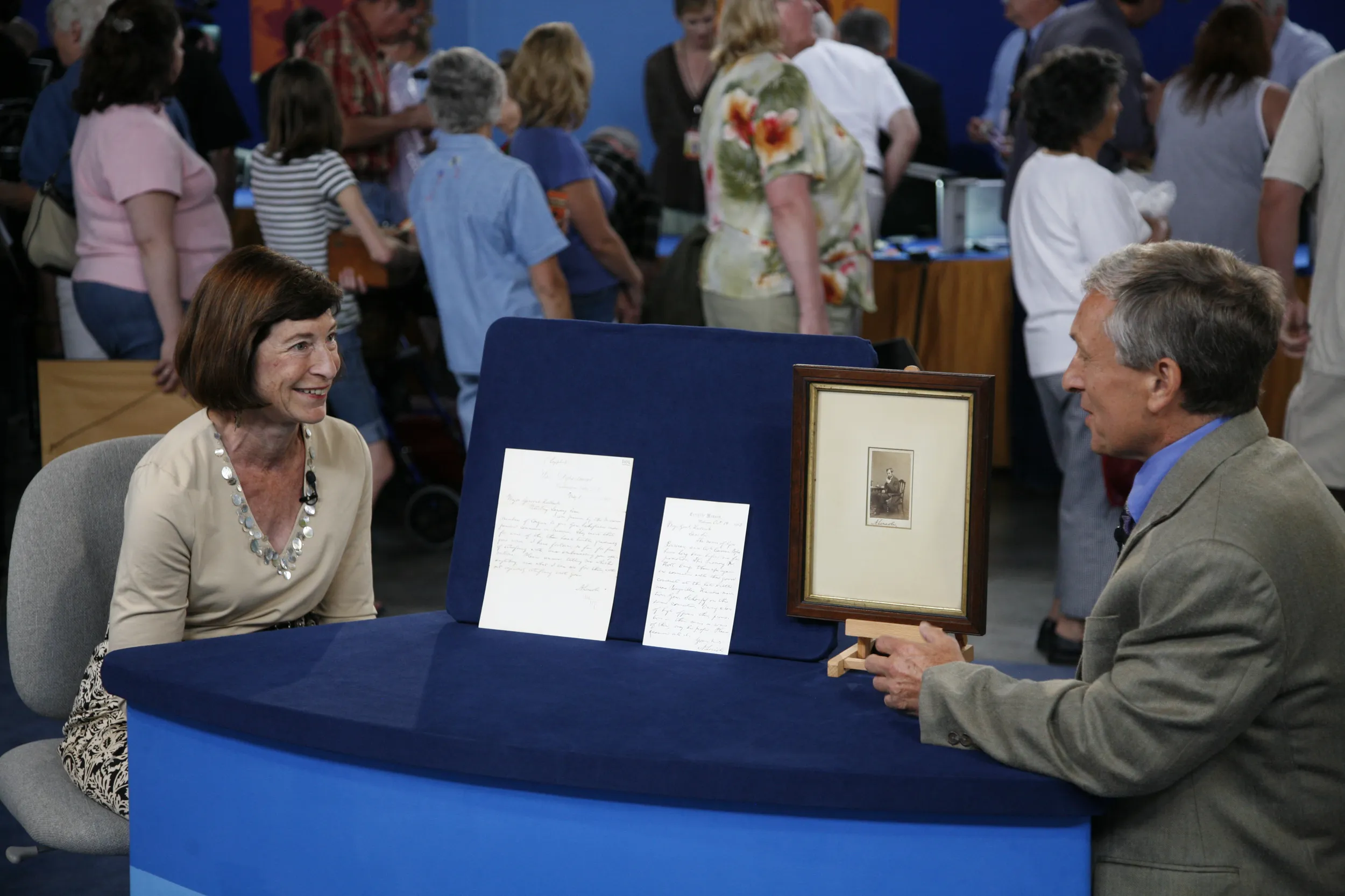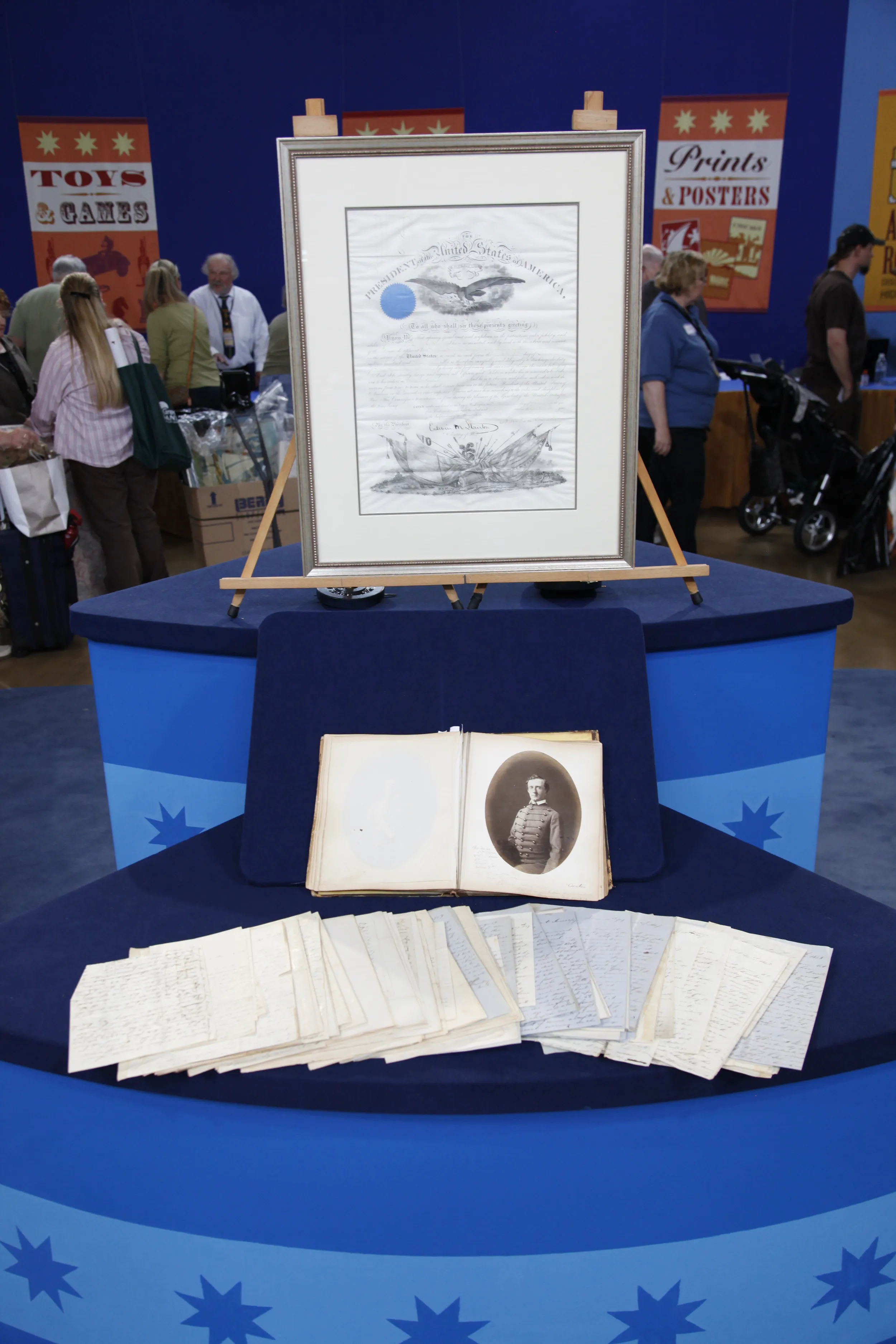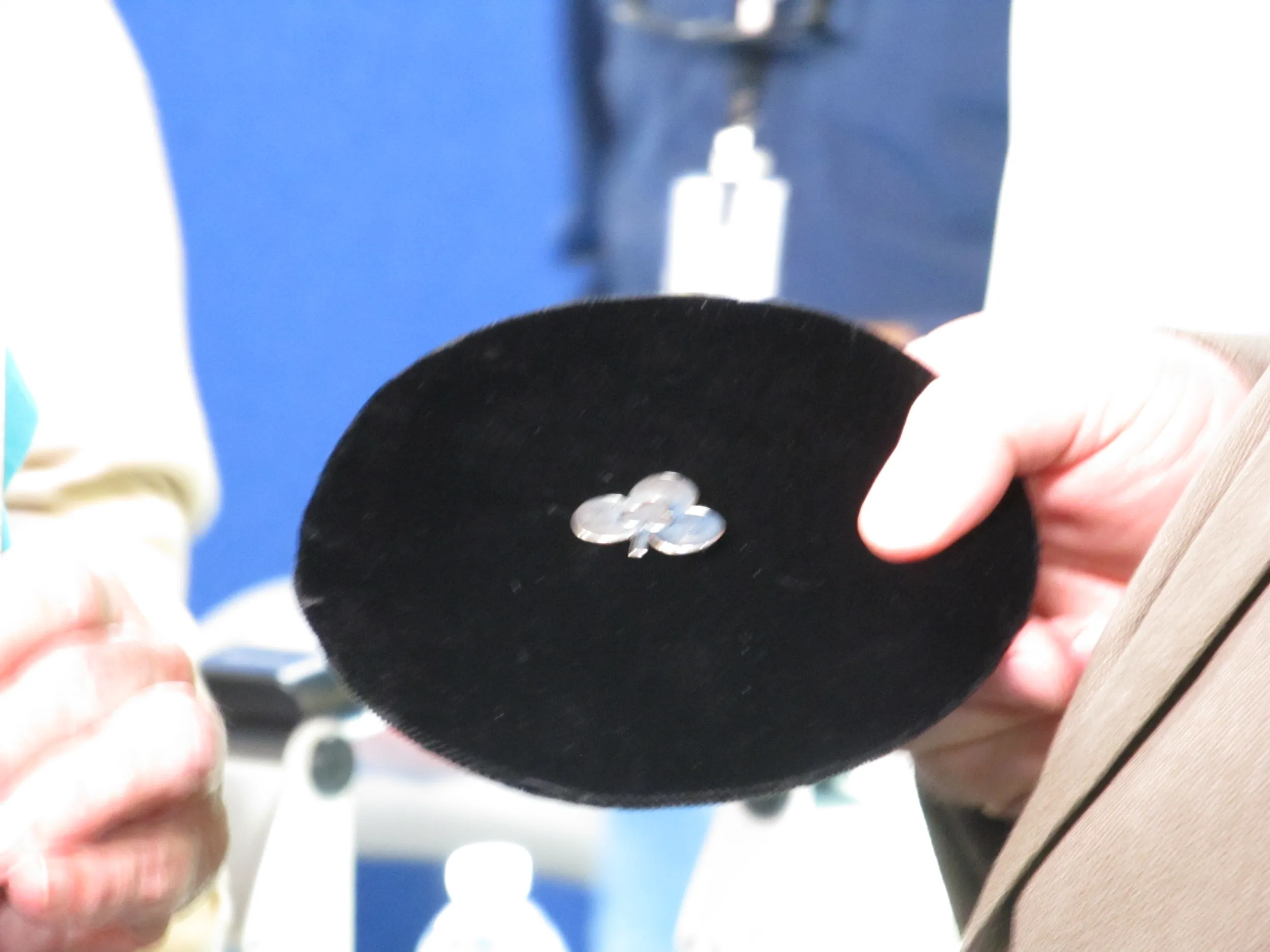GUEST: Brought in a Confederate sword that was my great-great- great-grandfather's and has been passed down through the generations. When I was a young boy, I remember it hanging in my grandfather's den. And then it went to my father, and when he passed away last year, I inherited it then.
APPRAISER: So you've known it as long as you've been around.
GUEST: Yes, exactly, since I was a little boy.
APPRAISER: And that's important for this sword, because these swords have been reproduced heavily. Knowing the history all the way back is very important. Do you know who made the sword?
GUEST: I know it was made in Macon, Georgia, is what I always heard, but I don't know much about it.
APPRAISER: And if you notice, we have "W.J. McElroy, Macon, Georgia," for William J. McElroy.
GUEST: Okay.
APPRAISER: He was in business before the war, selling various things. During the war, he saw an opportunity to make money. He made swords, he made buckles, and he was very good at branding. He put his name bold on the blade. This is his cavalry officer's version of his sword. This is one of the rarest swords a sword collector could get.
GUEST: Phew.
APPRAISER: We have a sand-cast guard that has the floral patterns which lets us know it's for an officer, not an enlisted man. The enlisted man's version of this is just smooth all over. On the handle we have a wooden core, and then they put a high quality leather over the top of it, and they use a single strand of copper wire and wrap it around to hold everything together.
GUEST: Right.
APPRAISER: And then they join it all together with another sand-cast pommel cap. We have the fancy and ornate etching all the way down the blade.
GUEST: Right.
APPRAISER: And the etching is what sets McElroy off from all the other makers.
GUEST: Okay.
APPRAISER: Most of the time they're real light and faint. You have to turn it in the light to be able to see it. This one, it goes, "Boom."
GUEST: Right.
APPRAISER: This one just screams to you when you see it. We've got floral and geometric patterns on the blade. We've also got crossed first national Confederate flags on the blade.
GUEST: Right.
APPRAISER: And there's a matching set on the scabbard.
GUEST: Mm-hmm.
APPRAISER: And we know this is the scabbard for this sword because of the matching etching.
GUEST: Oh, okay.
APPRAISER: It stands it out from all the others. This one, it's as good as they get. I'm not at a loss for words very often in my life, but this is a sword that will put you there. I only know of a few.
GUEST: Wow.
APPRAISER: This sword, because of condition and all the aspects that we've talked about, if I were going to insure this sword, I would insure this sword for $50,000.
GUEST: Oh, my lord. (chuckles) Uh... I... I'm speechless. I had no clue that it would be anywhere near that.
APPRAISER: This sword, if it didn't have that scabbard, would be around $20,000.
GUEST: Okay.
APPRAISER: The scabbard is the rare part.
GUEST: I'm just shocked right now. I don't know what else to say.
